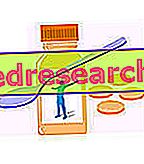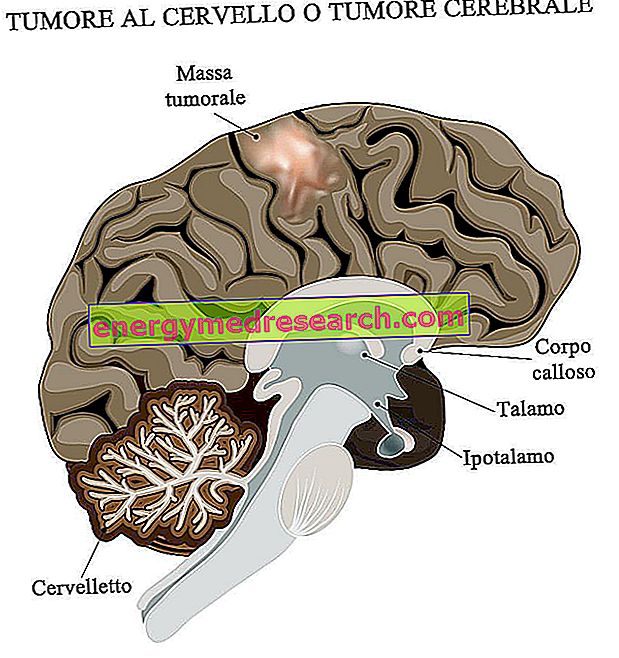By Dr. Izzo Lorenzo
Vitamins: what are they for?
The B vitamins, including folic acid, belong to the category of water-soluble, that is, vitamins that do not accumulate in the body, which are rapidly eliminated with urine and which must therefore be taken daily with the diet.

Vitamin B2, or riboflavin, is found in milk, chicken, fish, cheese, cereals, wheat germ, levito of beer, pine nuts, peanuts, walnuts, pistachios. It is used to keep the skin, nails, eyes and mucous membranes healthy. It is rarely poor in our diet. It acts in chemical reactions to produce energy.
Vitamin B5, or pantothenic acid, increases resistance to infections, safeguards the health of the skin, is important for cell renewal and for healing wounds and burns. It is found in meat and offal, in eggs and shellfish, in gorgonzola, in whole grains, in the levito of beer, in royal jelly.
Vitamin B6, or pyridoxine, is very common in foods (for example in meat, fish and legumes) and is also resistant to various industrial treatments. It is the precursor of an important enzyme in the metabolism of nitrogen compounds and influences the body's ability to use proteins.
Vitamin B12, or cobalamin, is actually a group of cobalt-containing compounds involved in the metabolism of fatty acids, nucleic acids and amino acids. It is present in all animal foods: liver, meat, fish, milk, eggs. Vegetarians are at risk of deficiency.
Alongside the B vitamins, vitamins C, H and PP also belong to the water-soluble category.
Vitamin C is a vitamin that participates in numerous metabolic reactions. It is an antioxidant and strengthens the immune system. It is found mainly in fresh fruit and vegetables: kiwi, citrus fruits, tomatoes and peppers. Unfortunately, vitamin C is almost completely neutralized by cooking and preservation. To really make an escort, therefore, fruit and vegetables should be eaten fresh and raw (or slightly cooked).
Vitamin H, or biotin, is present in the liver, in chicken, in egg yolk, in dried fruit and in various vegetables, in fish, in milk and in cheeses, but it is also abundantly produced by the intestinal flora. His needs are easily met by a regular diet.
Vitamin PP participates in cellular respiration and a number of other reactions. His deficiency was frequent in Italy at the beginning of the last century among the indigent populations who rarely had access to food of animal origin and who instead had a diet mainly based on corn. The result was pellagra: dermatitis, spots and peeling of the skin, diarrhea, and then neurological alterations, up to dementia.
Vitamins A, E, D and K are defined as fat-soluble because they are absorbed with dietary fat and accumulate in the liver. In fact, hypovitaminosis caused by these molecules occurs only in the event of failure to take them for prolonged periods of time.
Vitamin A, or retinol, is, along with carotenoids, essential for vision. A deficiency of A can cause fetal malformations, blindness, sensitivity to infections ... This vitamin is found mainly in animal foods, in eggs, in the liver, in cheese, in butter. When the food is cooked, part of it is lost, but being fat-soluble it accumulates in the liver. This characteristic, on the other hand, makes us susceptible to possible hypervitaminosis from A which can also cause permanent damage.
Vitamin E, or tocopherol, is an antioxidant. It is found in olives, wheat germ and seeds. His deficiency is associated with malnutrition.
Vitamin D, or calciferol, is a regulator of calcium metabolism and is therefore essential for a good mineralization of the skeleton. Most vitamin D is synthesized under the influence of the sun's rays, directly from the body, starting from substances present in the skin derived from cholesterol. His deficiency causes rickets in children. Its excess in adults causes a calcification in the organs. Vitamin D supplements are recommended during pregnancy, lactation and growth, given the low presence of calciferol in food. In all other phases of life, normal exposure to the sun is sufficient to reach the amount of vitamin D necessary for metabolism.
Vitamin K is found in the liver, in spinach and in cabbage. Very important for blood coagulation, if it is deficient you risk bleeding. The deficiency, however, is rare and occurs in particular pathological conditions such as malabsorption syndromes, long antibiotic treatments.
Minerals: what are they for?
Mineral salts are essential for the proper functioning of the organism. They are available in unprocessed foods, mainly in fruits and vegetables. Cooking and food processing loses most of the minerals contained in foods. Now let's see the properties of some minerals.
Magnesium: helps prevent cramps in athletes. Supports the proper functioning of the cardiovascular system and fights hypertension. Helps make the skin softer. Helps prevent the formation of kidney and gallstones. Magnesium helps relax muscles.
Potassium: it is useful in muscle contraction, energy production, nucleic acid synthesis, maintenance of intracellular tonicity and maintenance of normal blood pressure levels. It also balances the sodium potassium ratio in case of high sodium intake with foods.
Calcium: it is an essential mineral for bones. It helps relieve leg cramps and can help keep the cadiovascular system efficient.
Iron: it is useful to maintain a correct physiological level of hemoglobin and red blood cells in the blood (against anemia), it stimulates the immune system.
Chromium picolinate: may contribute to enhancing insulin activity and regulating the metabolism of sugars.
Iodine: this mineral increases the activity of the thyroid, accelerating the metabolism.
Zinc and Magnesium: zinc and magnesium play a vital role in the metabolic cycle linked to muscular strength and resistance. Zinc could increase muscular endurance in people subjected to physical stress. Low dietary zinc levels are related to the decrease in endogenous testosterone levels. Magnesium is essential for energy production in both aerobic and anaerobic metabolism and in the formation and regulation of muscle proteins.



